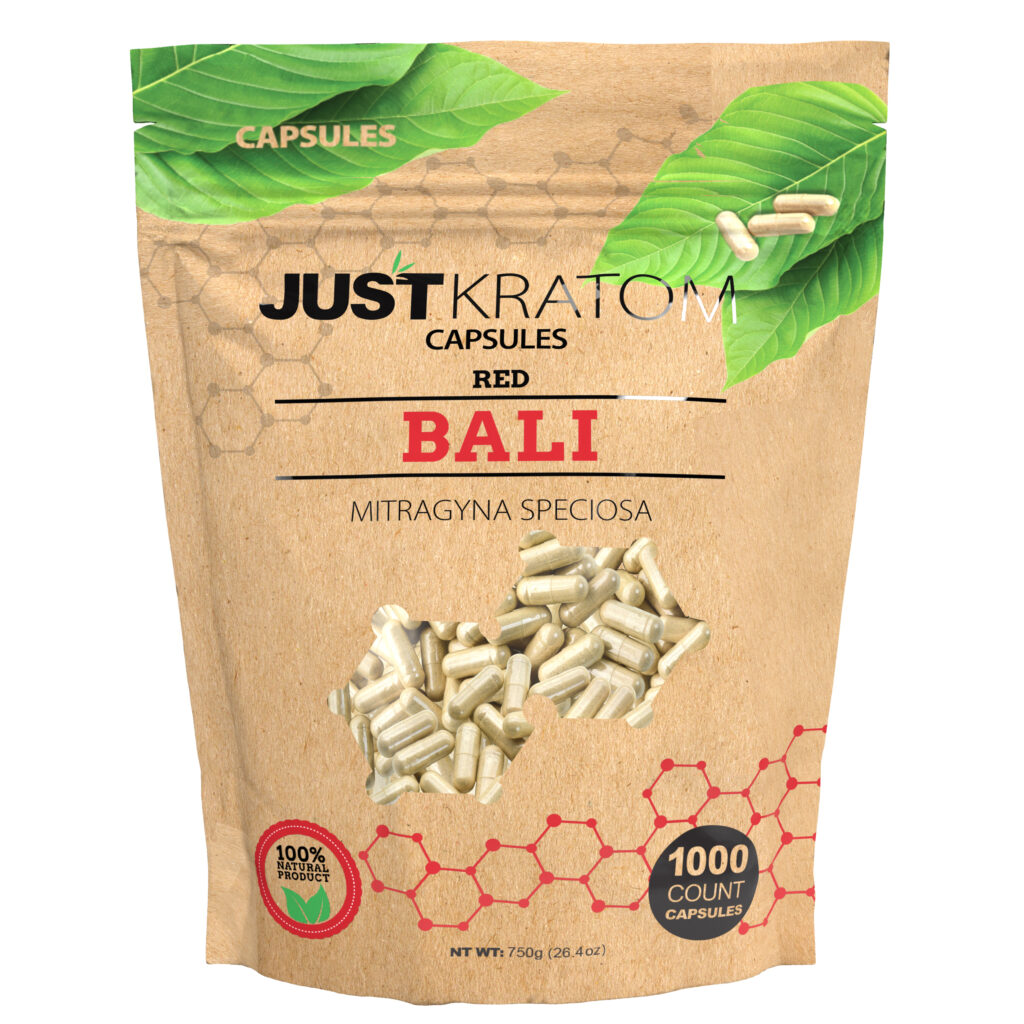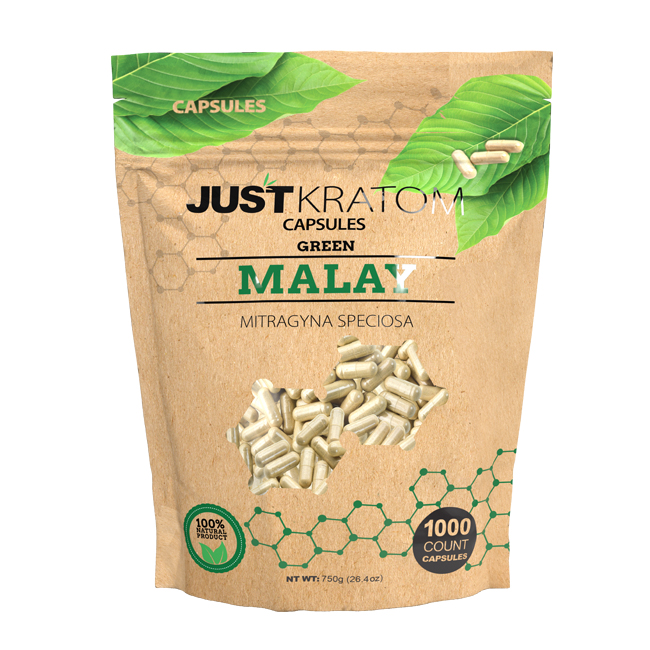What is Kratom?
Kratom is an evergreen tree native to Southeast Asia, whose leaves contain alkaloids that produce psychoactive effects. It has been traditionally used in these regions for its purported pain-relieving, mood-boosting, and energizing properties. With growing popularity worldwide, kratom is increasingly being explored as a natural alternative for managing various ailments.
Origins and Uses

Kratom is an evergreen tree native to Southeast Asia, whose leaves contain alkaloids that produce psychoactive effects. It has been traditionally used in these regions for its purported pain-relieving, mood-boosting, and energizing properties. With growing popularity worldwide, kratom is increasingly being explored as a natural alternative for managing various ailments.
The origins of kratom use can be traced back centuries in Southeast Asia, where it has been integrated into traditional medicine systems.
- It was historically consumed by laborers to combat fatigue and enhance their endurance during long work hours.
- Kratom is also believed to have been used for managing pain, particularly in treating chronic conditions.
- In some cultures, it has even been employed for its potential mood-altering effects, both as a stimulant and a sedative depending on the dosage.
Chemical Compounds
The primary psychoactive compounds in kratom are mitragynine and 7-hydroxymitragynine. These alkaloids interact with opioid receptors in the brain, contributing to the plant’s various effects.
- Mitragynine is responsible for many of kratom’s stimulant properties, including increased energy and focus.
- 7-hydroxymitragynine is thought to be more potent than mitragynine and plays a role in the pain-relieving and sedative effects of kratom.
Kratom for Mood Enhancement
Kratom, an evergreen tree native to Southeast Asia, has gained global attention for its potential therapeutic benefits. Traditionally used in these regions for centuries, kratom leaves contain alkaloids that produce psychoactive effects, leading to their use as a natural remedy for various ailments. While research on kratom is ongoing, individuals are increasingly exploring it as a potential option for managing mood disorders and enhancing overall well-being.
Potential Benefits
The potential mood-enhancing effects of kratom stem from its interaction with opioid receptors in the brain. The alkaloids mitragynine and 7-hydroxymitragynine, found abundantly in kratom leaves, are believed to contribute to these effects. Mitragynine, known for its stimulating properties, may promote feelings of alertness and energy, while 7-hydroxymitragynine, considered more potent than mitragynine, is thought to have both pain-relieving and sedative qualities that could potentially influence mood.
Although anecdotal evidence suggests kratom may help alleviate symptoms of depression and anxiety, scientific research on its efficacy for mood disorders is limited. Some studies suggest that kratom might have antidepressant and anxiolytic properties, but further rigorous investigation is needed to confirm these findings.
Mechanism of Action
Kratom’s potential mood-enhancing effects are linked to its interaction with opioid receptors in the brain. The primary alkaloids responsible for these effects are mitragynine and 7-hydroxymitragynine.
- Mitragynine is thought to contribute to kratom’s stimulant properties, potentially leading to feelings of alertness and energy, which could indirectly improve mood.
- 7-hydroxymitragynine is believed to have stronger opioid binding activity and may play a role in both pain relief and sedation. These effects could indirectly influence mood by reducing emotional distress associated with pain or promoting relaxation.
Scientific Research
Kratom’s potential mood-enhancing effects are linked to its interaction with opioid receptors in the brain. The primary alkaloids responsible for these effects are mitragynine and 7-hydroxymitragynine. Mitragynine is thought to contribute to kratom’s stimulant properties, potentially leading to feelings of alertness and energy, which could indirectly improve mood.
- 7-hydroxymitragynine is believed to have stronger opioid binding activity and may play a role in both pain relief and sedation. These effects could indirectly influence mood by reducing emotional distress associated with pain or promoting relaxation.
While anecdotal evidence suggests kratom might help alleviate symptoms of depression and anxiety, scientific research on its efficacy for mood disorders is limited. More rigorous studies are needed to determine the effectiveness and safety of kratom for treating these conditions.
It’s important to note that kratom can have adverse effects and may interact with other medications. Individuals considering using kratom should consult with a healthcare professional to discuss potential risks and benefits.
Safety and Side Effects
Before considering kratom for mood enhancement, it’s crucial to understand its potential side effects and safety considerations. While some individuals report positive experiences, kratom can have adverse effects, including nausea, vomiting, constipation, itching, and dizziness. It may also interact with certain medications, leading to potentially dangerous complications. Consulting a healthcare professional is essential before using kratom to assess individual risks and ensure safe usage.
Dosage Recommendations
Kratom capsules are typically taken orally. Dosage recommendations vary depending on the individual and desired effects. It’s important to start with a low dose and gradually increase it as needed, while carefully monitoring for any adverse reactions.
Safety and potential side effects should always be top priorities when considering kratom use. While some individuals experience positive effects, kratom can cause adverse reactions such as nausea, vomiting, constipation, itching, dizziness, and even more serious complications in certain cases.
Individuals with pre-existing health conditions or those taking medications should consult a healthcare professional before using kratom, as it may interact with certain drugs and worsen existing health issues.
Potential Risks and Interactions
Kratom can have adverse effects and may interact with other medications. It’s important to note that kratom can cause adverse reactions such as nausea, vomiting, constipation, itching, dizziness, and even more serious complications in certain cases.
Individuals with pre-existing health conditions or those taking medications should consult a healthcare professional before using kratom, as it may interact with certain drugs and worsen existing health issues.

Legality and Regulations
The legal status of kratom varies widely around the world. In some countries, it is completely banned, while in others it is legal but regulated. Understanding the specific laws and regulations regarding kratom in your location is crucial before considering its use.
Current Legal Status
Kratom’s legal status is complex and varies significantly depending on the country or region. In some countries, kratom is completely banned, while in others it is legal but may be subject to restrictions or regulations. The United States, for example, has a patchwork of state laws regarding kratom, with some states banning it outright while others allow its sale and consumption.
The Drug Enforcement Administration (DEA) in the US attempted to classify kratom as a Schedule I controlled substance in 2016, but faced significant public opposition and ultimately decided against it. However, kratom remains under DEA scrutiny and its legal status could change in the future.
It is essential for individuals considering using kratom to research the specific laws and regulations in their jurisdiction to ensure they are complying with local and national guidelines.
International Differences
The legality of kratom varies significantly across the globe. In some countries, it’s completely prohibited, while others permit its use but impose regulations. Understanding the specific legal framework surrounding kratom in your location is paramount before considering its use.
- United States: Kratom’s legal status in the US is complex and varies from state to state. Some states have banned it entirely, while others allow its sale and consumption with varying degrees of regulation.
- European Union: The EU generally considers kratom a “novel food” and has strict regulations regarding its marketing and sale. Some countries within the EU, like Germany, have banned kratom altogether.
- Southeast Asia: Kratom is traditionally used in Southeast Asian countries and is often legal there. However, specific regulations may vary between nations.
Alternatives to Kratom**
For those seeking alternatives to kratom for mood enhancement, several options exist. These range from established medications to natural remedies. Antidepressants, such as selective serotonin reuptake inhibitors (SSRIs) and serotonin-norepinephrine reuptake inhibitors (SNRIs), are commonly prescribed for treating depression and anxiety. Lifestyle changes like regular exercise, a balanced diet, and stress management techniques can also significantly improve mood.
Herbal Supplements
For those seeking alternatives to kratom for mood enhancement, several options exist. These range from established medications to natural remedies. Antidepressants, such as selective serotonin reuptake inhibitors (SSRIs) and serotonin-norepinephrine reuptake inhibitors (SNRIs), are commonly prescribed for treating depression and anxiety.
- Exercise: Regular physical activity has been shown to have mood-boosting effects by increasing endorphin levels and reducing stress.
- Diet: A balanced diet rich in fruits, vegetables, and whole grains can provide essential nutrients that support brain health and emotional well-being.
- Stress Management Techniques: Practices like meditation, yoga, or deep breathing exercises can help manage stress levels and promote relaxation, leading to improved mood.
Herbal supplements like St. John’s wort, ginseng, and ashwagandha are also sometimes considered for their potential mood-enhancing properties. However, it is important to consult with a healthcare professional before using any herbal supplements as they can interact with medications or have unintended side effects.
Prescription Medications
There are several prescription medications available that can be effective for managing mood disorders.
Selective serotonin reuptake inhibitors (SSRIs) are a common type of antidepressant that works by increasing serotonin levels in the brain. Examples include fluoxetine (Prozac), sertraline (Zoloft), and escitalopram (Lexapro).
Serotonin-norepinephrine reuptake inhibitors (SNRIs) work similarly to SSRIs but also increase norepinephrine levels. Examples include venlafaxine (Effexor) and duloxetine (Cymbalta).
In some cases, atypical antidepressants like bupropion (Wellbutrin) or mirtazapine (Remeron) may be prescribed.
Get premium Kratom capsules for all-day energy
- Kratom Capsules For Mood Enhancement: Can They Help? - September 30, 2025
- Juvederm Volite Skin Booster Treatments Near Staines, Surrey - September 28, 2025
- How Long After Lip Filler Can I Wear Lipstick - September 27, 2025
